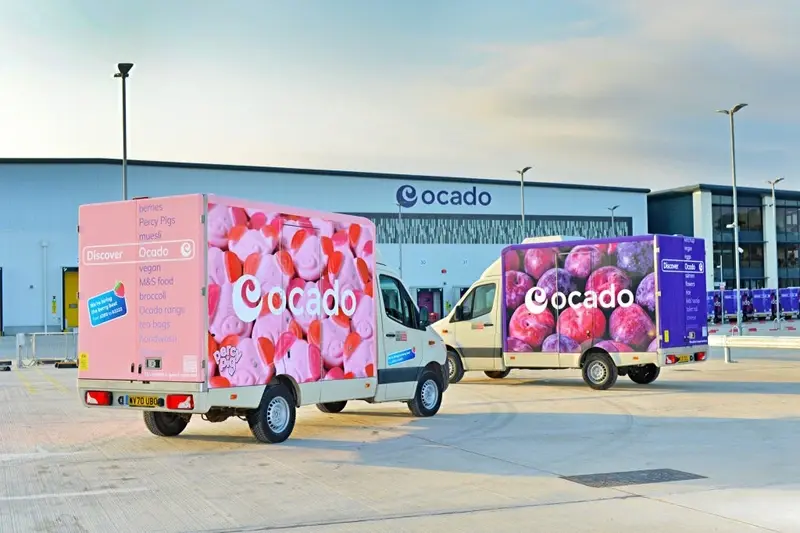
- Half a billion-pound loss in 2022
- Households more cautious on spending
- Pace of new platform client sign-ups disappointing
Investors are losing patience with online grocery specialist Ocado (OCDO) after it reported yet another year of losses and warned that customers were no longer doing big shops with its UK retail joint venture with Marks & Spencer (MKS).
The shares fell more than 8% to 572.8p on the news, meaning they are now down 58% over the past 12 months.
The online grocery specialist blamed the cost-of-living crisis and an all-round ‘challenging year’ for the wider losses. Its joint venture with Marks & Spencer has found it harder to grow sales as consumers deal with higher utility, transport, food and financial bills.
Retail data provider Kantar today revealed that grocery price inflation hit 17% in the year to February. This means that households face spending an extra £811 on their supermarket bills for the year.
Revenue for Ocado’s retail joint venture was down 3.8% at £2.2 billion as customers looked to other supermarkets like Aldi and Lidl for a cheaper weekly shop.
Why Ocado’s shares could be a more volatile ride than you think
Tim Steiner, chief executive of Ocado, remains optimistic. He says: ‘Over the last year every company has had its business model tested by a combination of macro-economic and geopolitical headwinds, and I am pleased that, thanks to the creativity and commitment of my colleagues, we have more confidence in our model than ever before.
‘Ocado Retail, our UK joint venture with M&S, has shown its resilience against a backdrop of higher costs and smaller baskets, reflecting the Covid unwind and the UK cost of living crisis, by growing customer numbers and increasing online market share. As the Covid unwind fades and customer growth continues the business will start to recover the fixed costs of recent capacity commitments.’
NOT ENOUGH NEW PARTNERS?
It was not all bad news for Ocado as it announced 12 new global sites and nine customer fulfilment centres. In addition to this, two new partnerships were signed in 2022, bringing the total number of third parties using its technology platform to 12. Eight of the 12 partners are now live on Ocado’s systems; two more are to be added in 2023.
Many people hoped the pace of new sign-ups would be significantly greater. ‘Three years ago, it was on the cusp on a significant shift in consumer behaviour,’ says Russ Mould, investment director at AJ Bell. The pandemic forced people to buy their groceries online, meaning any company that didn’t have a robust set-up to pack and deliver food and drink to households had to think fast to gain this capability.
‘Ocado had the best moment in its existence to sell its technology platform to grocers around the world. Sadly, the deals have been few and far between, leaving investors wondering when it will ever make a sustainable profit.’
DEVELOPING NEW TECHNOLOGY
Last year the online grocery specialist launched, in its opinion, seven game-changing innovations known as ‘Ocado Re:Imagined’.
These include ‘the world’s lightest and most efficient’ grocery fulfilment bot and a system with advanced sensing capabilities which can pick tens of thousands of products of different shapes, sizes and weights and pack them densely in bags ‘with human precision and accuracy’.
Disclaimer: The author (Sabuhi Gard) owns shares in Ocado. Daniel Coatsworth who edited this article owns shares in AJ Bell, which is referenced in this article and which is the owner of Shares magazine.




